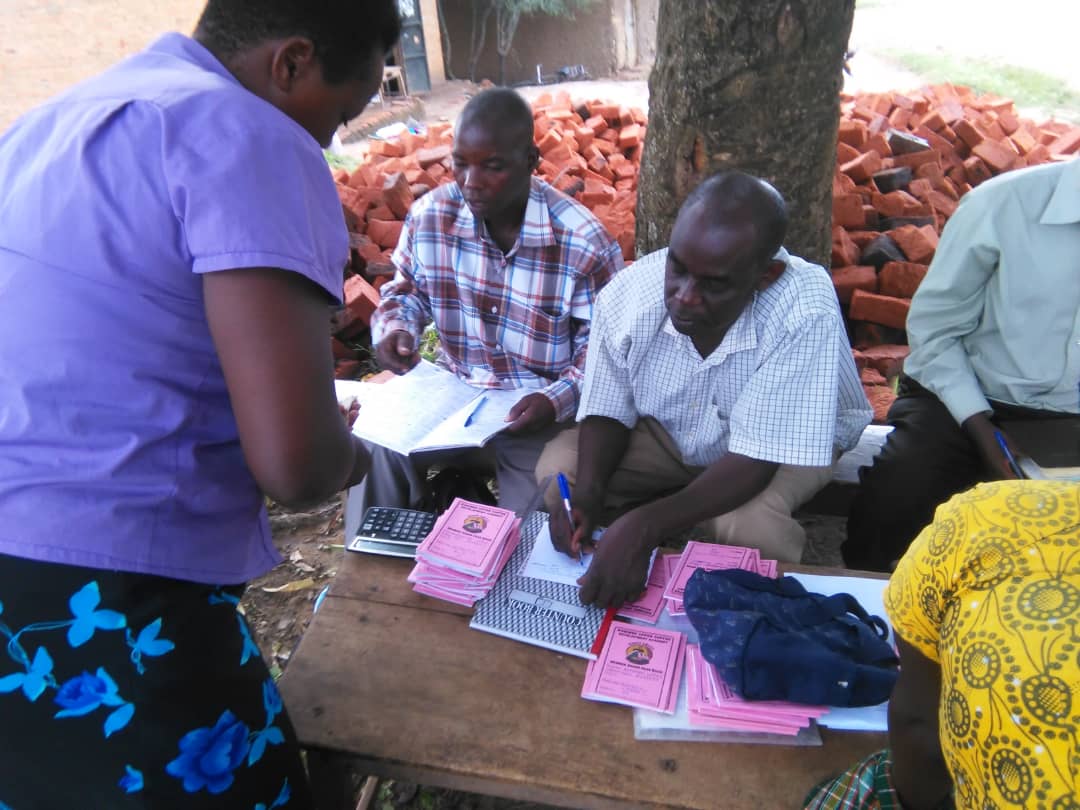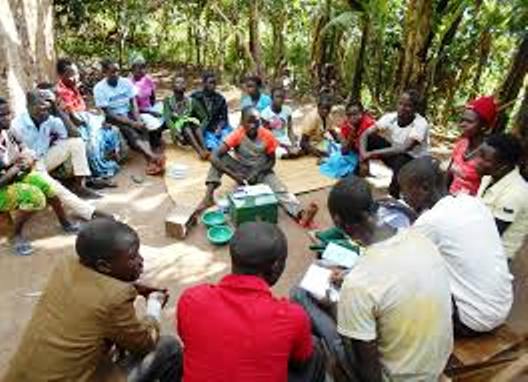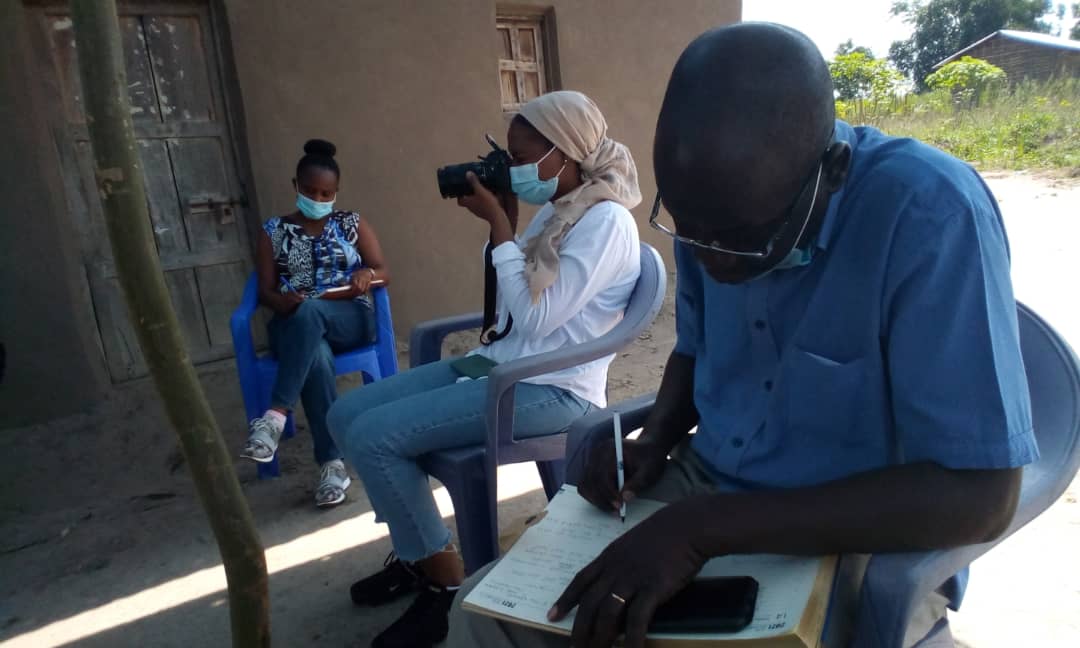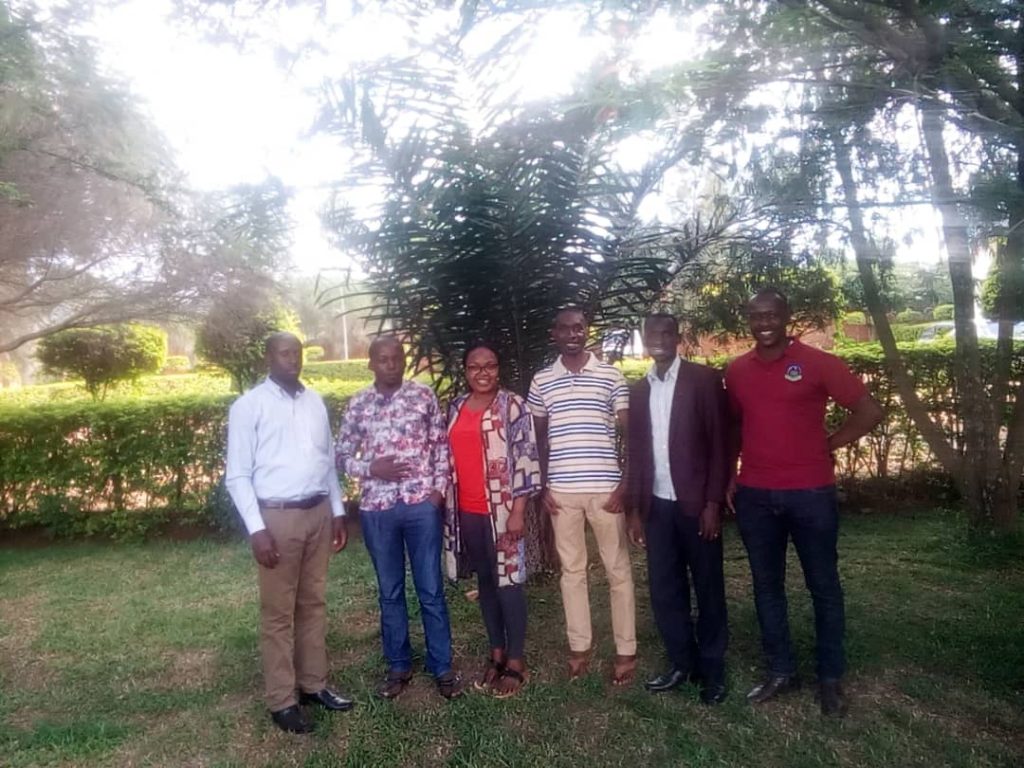




The Village Savings and Loan Scheme is an IPaCoPA's sustainability strategy where members in their self-manage Groups meet regularly to save their money in a safe space and access small loans from the money collected among themselves to invest in livelihood projects at household level such as Agriculture and Solar energy. Because most individual members lack prerequisites to access loans from financial institutions, the VSLA scheme helps members to easily access finances and secure soft loans under group guarantorship. This supplements TUA's efforts to implement various aspects of the IPaCoPA initiative and to sustain the TUA's already supported projects such as looking after the trees planted and setting up kitchen gardens by households. With our external partners, key of them who include the District Local Government, UNDP, SAI Group UK, and Jade Products Ltd, we have been able to get endorsements, Capacity trainings, Digital Platforms such as Project Management systems and access to e-commerce, Funding (forexample from UNDP-Y4BF to support 500 youth in commercial farming of Chilli), and other resources which makes IPaCoPA operate in complete ecosystem.
- Existence of clear objectives aligned to the UN's Sustainable Development Goals (SDGs) that interest other organisations/Firms with similar or related objectives, and or philanthropic about what we intend to achieve through our objectives.
- The zeal and enthusiasm by the team leader and the board to search for relevant partners and express interest for partnership.
- Access to and ability to use internet enhanced with an organisational website “www.treeugandaacademy.com”
- Upholding the organisational principles and values.
- Building trust with partners and also determining the trustworthiness of those whom you partner with is paramount to sustain relevant and lasting partnerships. Concisely it’s important to develop clear agreements, be flexible and understand your partner’s language.
- Partnership is a learning process therefore you need to be open order to learn from other partners, particularly local partners in areas where project activities are being implemented. Local partners have a lot to teach about the community needs and local context and how to develop and create more sustainable results.
- Failures on some partnerships is inevitable, in case partnership fails, it is important to assess why the partnership failed, share and learn from those failures, reiterate and incorporate the lessons learned into the next partnership.
- The success of our organisation and the IPaCoPA solution ain particular relies on strong partnerships. Developing a partnership mindset based on relationships is far important because even when the funded activities end, the relationship continues and there is an opportunity for sustainable support.